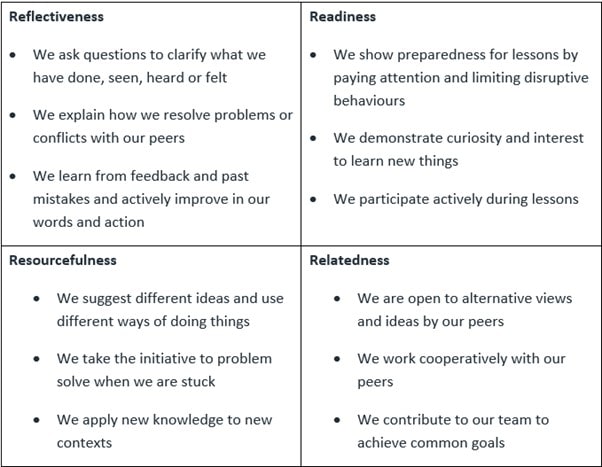Nurturing Your Child’s Learning Disposition: A Parent’s Guide to Success
Welcome, Super Parents! Are you looking to give your little ones the best start in their educational journey? You’ve come to the right place! Understanding and nurturing your child’s disposition for learning is like planting seeds for a mighty tree of knowledge. Let’s grow together!
What Is Disposition for Learning?
Before we dive into the strategies, let’s unpack the term disposition for learning. In essence, it’s the attitude and approach your child has towards learning. It encompasses curiosity, persistence, resilience, and the eagerness to learn. A positive learning disposition can significantly influence academic success and overall life satisfaction.
Why Is Learning Disposition Important?
Think of a positive learning disposition as the wind beneath your child’s wings. It allows them to soar high in the face of challenges and grab opportunities with both hands. Children with a good disposition towards learning are more likely to engage deeply with their studies, approach problems creatively, and develop a lifelong love for learning.
How Can Parents Influence Their Child’s Disposition for Learning?
You are your child’s first and lifelong teacher. Your influence is powerful! With the right mindset and tools, you can create a home environment that fosters a love for learning. From setting routines to encouraging curiosity,; every action contributes to developing your child’s learning disposition.
Strategies to Encourage a Positive Learning Disposition
Get ready to embark on a magical journey where you’ll learn to instill a zest for learning in your child. Below are golden strategies to give your child an enduring love for learning.
Create a Rich Learning Environment
A stimulating environment is the cornerstone of a positive learning disposition. Surround your child with books, encourage educational play, and engage in conversations that nurture their natural curiosity. Provide resources that support learning, such as access to libraries, educational toys, and interactive experiences that broaden their horizons.
Encourage Questions and Curiosity
Curiosity may have troubled the cat, but it’s the fuel for your child’s learning engine. Embrace their endless “why’s” and “how’s,” and encourage them to ask questions about the world around them. Engaging in discussions about their queries shows them that their thoughts are valued and that seeking knowledge is a commendable pursuit.
Foster Resilience and Problem-Solving Skills
Learning isn’t always smooth sailing. Teach your child to navigate the choppy waters of challenges and setbacks. Help them develop resilience by guiding them through problem-solving processes. Encourage them to try different solutions and learn from their mistakes, as these are vital steps in fostering a growth mindset.
Patiently Celebrate Efforts and Progress
Acknowledging efforts rather than just praising results instills a sense of accomplishment and motivates children to keep trying and learning. Celebrate the small wins along the journey as well as the big victories at the destination. This can boost their confidence and reinforce a positive attitude towards learning new things.

Five Things Parents Should Know in Preparing for Disposition for Learning
1. Understand Each Child is Unique
Every child comes into the world with their own unique set of traits and potentials. Recognize and accept that your child will have a distinctive way of interacting with the world. Tailor your approach to fit their individual needs, interests, and pace of learning, which will provide a solid foundation for their enthusiastic engagement with new knowledge.
2. The Power of Role Modeling
Children learn by example, so be the role model for a positive learning disposition. Show enthusiasm for your own learning and problem-solving. Let your child see you read, write, calculate, and engage in lifelong learning. Your attitude towards knowledge and education will greatly influence their own.
3. Balancing Structure and Freedom
A consistent routine gives children a sense of security and helps them understand what is expected of them. However, it’s equally important to allow the freedom for exploration. Give your child time and space for unstructured play and discovery which can ignite their imagination and nurture their problem-solving skills.
4. Embrace Technology Wisely
We live in a digital age and technology can be a double-edged sword. Use it to your advantage by providing your child with educational apps and online resources that complement their learning. However, be mindful to balance screen time with real-world experiences to ensure a varied and wholesome learning diet.
5. Communication is Key
Open, honest, and respectful communication builds trust and safety, crucial elements for a positive learning disposition. Encourage your child to express their thoughts and feelings about their educational experiences. Listen actively and offer guidance and support whenever needed to help them overcome challenges.
See more great Things to Do with Kids in New Zealand here. For more information see here
Disclaimer
The articles available via our website provide general information only and we strongly urge readers to exercise caution and conduct their own thorough research and fact-checking. The information presented should not be taken as absolute truth, and, to the maximum extent permitted by law, we will not be held liable for any inaccuracies or errors in the content. It is essential for individuals to independently verify and validate the information before making any decisions or taking any actions based on the articles.




